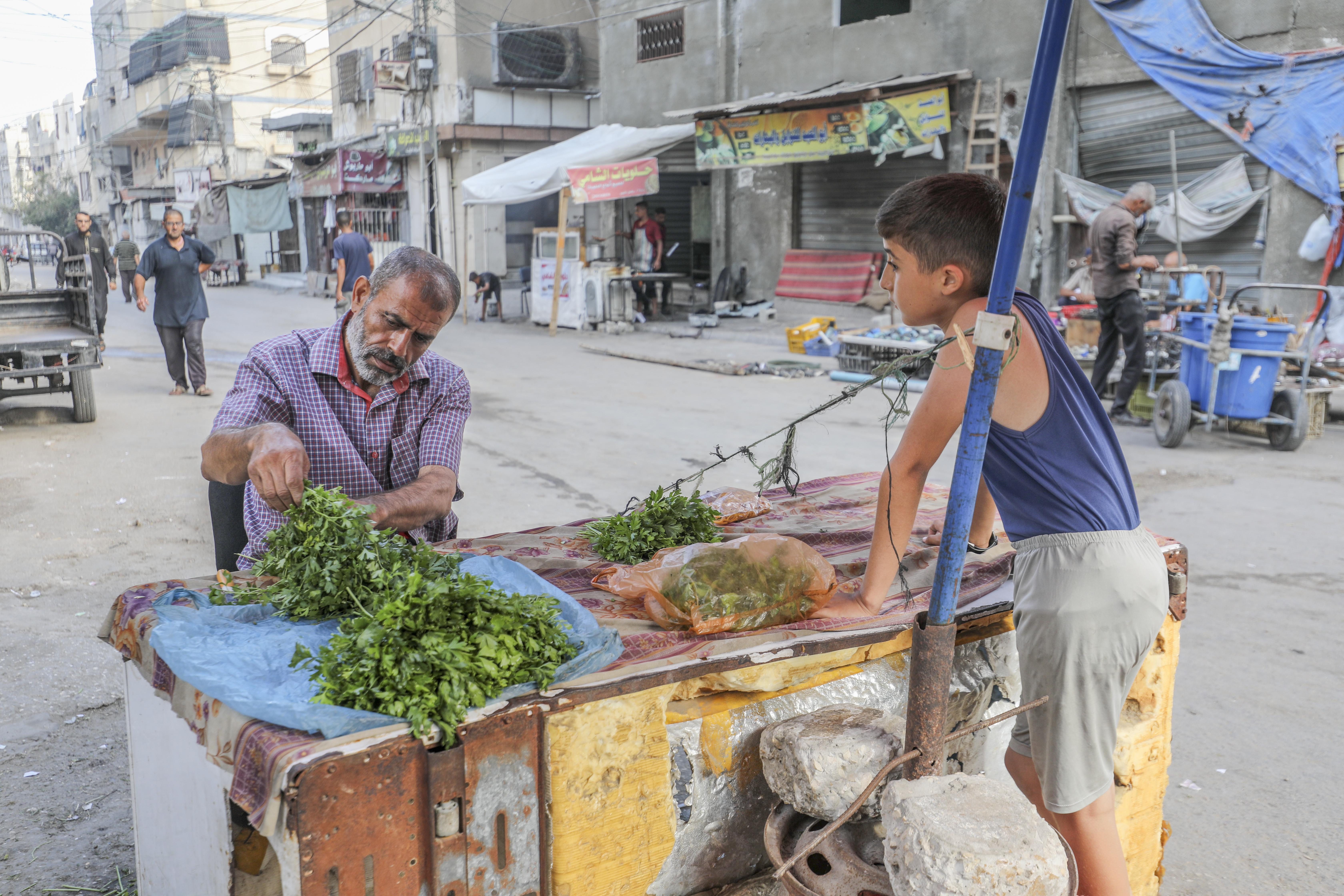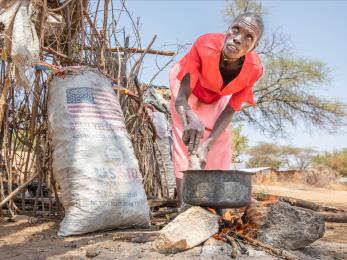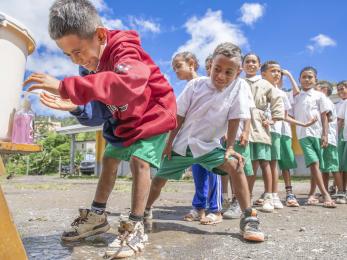Teachers are changemakers: Child nutrition in Uzbekistan
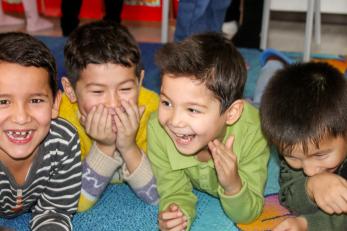
In Uzbekistan, a group of newly minted “champion preschool teachers” received awards at the end of their training and mentorship programme, supported by Mercy Corps. At a conference on improving children’s health and access to food, they were learning and sharing ways to implement more nutritional approaches for preschoolers, so the teachers could help increase food security in their schools.
Since Uzbekistan gained independence in 1991, communities have worked to manage the water supply as climate change has severely dried up the Aral Sea, formerly the fourth largest saltwater lake in the world. The country imports a third of its food from Russia and Ukraine, and has been impacted by the war in Ukraine. Uzbekistan is working to maintain its water supply to help farmers continue to grow their crops. Reducing a reliance on imports makes a huge difference in the food security of the region, particularly for their youngest citizens.
Aziza, a mentor who won one of the “best public education specialist of Uzbekistan” awards at the training, notes that the nutritional information programme dramatically helped the students. “After the lesson on healthy and unhealthy foods, the children stopped eating crackers with various additives and drinking carbonated drinks,” Aziza said. “My students became more engaged. They show interest. Their eyes shine.”
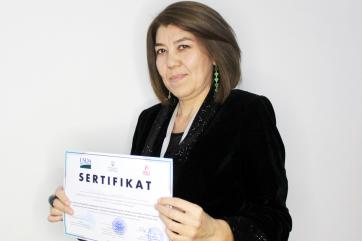
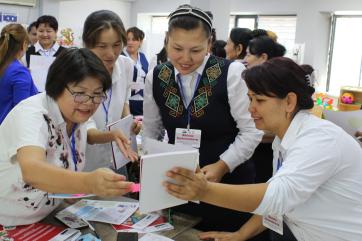
Mercy Corps alone plans to reach 9,000 students in 60 preschools across Uzbekistan. Working with the Government of Uzbekistan, the wider programme is in the process of reaching over 90,000 preschoolers.
Preschoolers are still developing, and a key to a child’s development is making sure that they have easy access to healthy, nutritious food to fuel them as they grow. Teachers are essential to helping their preschool students live a healthy lifestyle and learn healthy habits. About 50% of children in the region attend preschool, though enrolment is lower in rural areas.
Abdalova, a champion teacher and mentor, appreciated learning effective teaching methods “explained by the professionals of the field. We have developed new methods for the emergence and development of early social skills in school-aged children.” Being a champion teacher, taking the extra training to learn and share new methods with other professionals, “is about sharing the recipe for success of joint work with your colleagues,” Abdalova said.
The training also covered “taste exposure”—a way to promote adding unfamiliar foods to a person’s meals—as a way to improve dietary diversity, not only for the kids, but for their families. Feruza, another champion teacher, focused on how to engage parents in their children’s nutrition. “I try to promote that continuous parent engagement is one of the important directions which helps early childhood development,” she said.
My students are very happy and are better aware of healthy and unhealthy eating habits. I heard their parents boasting about their children giving feedback when they eat at home.
Abdalova, Champion teacher and mentor
Increasing access for all
Most schools in Uzbekistan run year-round, and with Mercy Corps’ support and a number of food products, the programmes offer free nutritious lunches and snacks for the students. Access to a healthy meal every day sets a consistent standard for children’s growth and development. Even small changes to food consumption and choices can make a large impact on how the children learn and grow.
The schools also provide tips to help the kids practise good hygiene, like regular handwashing before meals. The teachers pass on information to their peers and mentees to illustrate dietary concepts to their preschool students, and then they can find methods that are sustainable for the children to maintain at home.
Holistic support for the children
Each preschool in the programme receives a range of activities for a holistic approach to improving nutrition and increasing access to food. Alongside the teacher trainings, the programmes also train nurses, cooks, and provide food, reading corners, and improvements to infrastructure. As a part of the programme, Mercy Corps worked with the Agency of Preschool Education on the initiative to improve the quality of preschool education. The teachers use self-reflection and mentorship to review their own teaching practices and learn more sustainable ways to help their students.
The conference and trainings throughout 2023 are just some of many activities that the teachers have implemented. Mentors regularly publish articles in local newspapers to spread the word about the work they are doing. Providing care and food for the children is a benefit to getting children into schools, and they hope to increase enrolment. The future of every growing country depends on how well it can collectively provide and care for its children. “Being a champion teacher is, first, a responsibility,” Aziza said. “Also, I help other teachers around me. This is an achievement and a big responsibility at the same time.”

